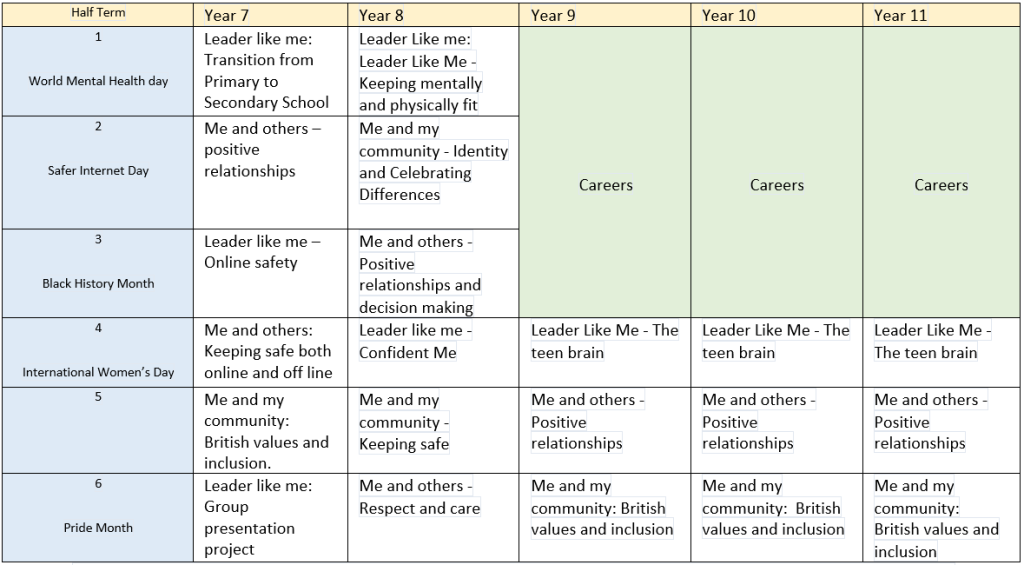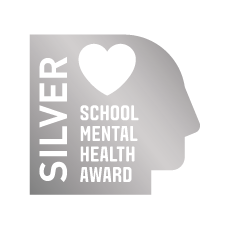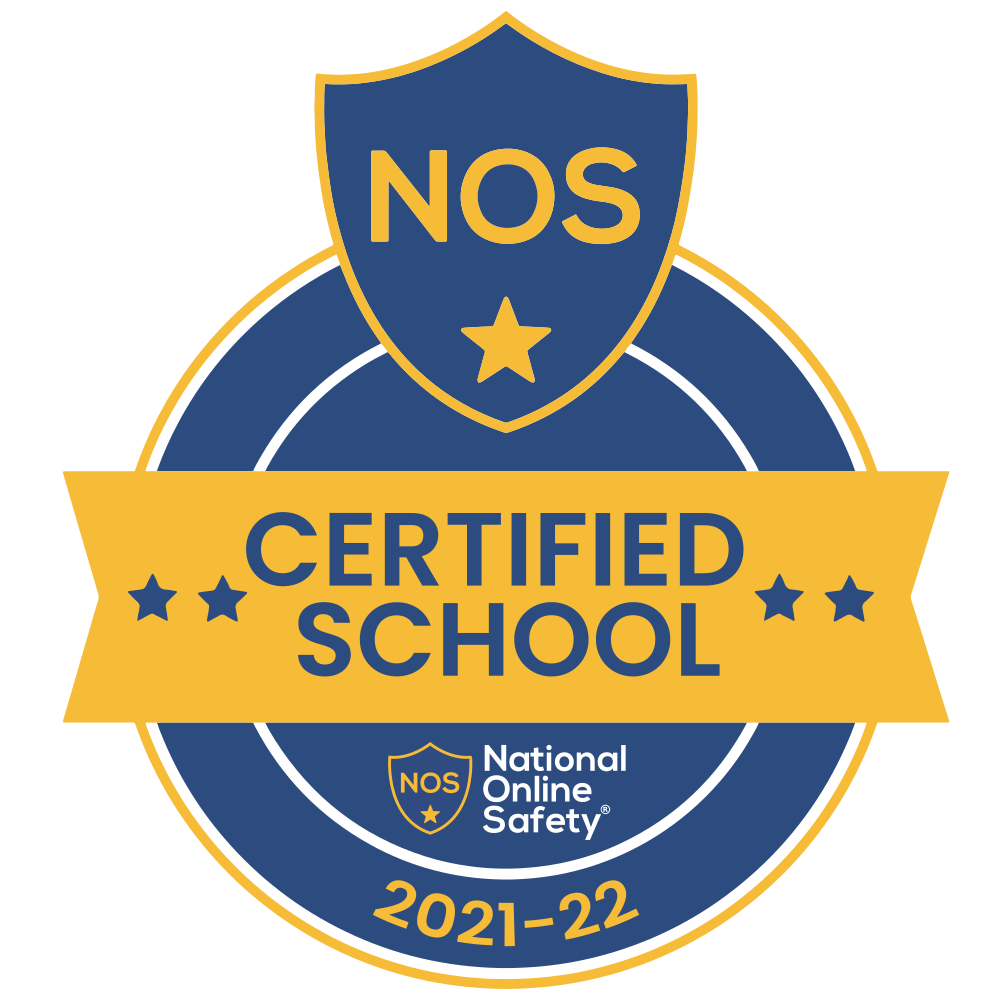Life – Curriculum Adventure
At Da Vinci Academy all students have an entitlement to a broad, balanced and relevant curriculum which is aligned with the National Curriculum at Key Stage 3 and highly effective pathways at Key Stage 4. We are an inclusive school, which recognises the diverse needs of our students, enabling all of them to have access to a core curriculum. Our curriculum reflects the needs of our community, our local area and national priorities. All courses cater for students’ individual needs, abilities and interests, which results in motivated young people leaving Da Vinci Academy with the best possible outcomes. Our curriculum, combined with our extended curriculum, has a thoughtful and wide-ranging promotion of students’ spiritual, moral, social and cultural development, following the national curriculum whilst adapting to the needs of our young people and their communities.

Overview of Programme
The first three topics of PSHE at Da Vinci follow the same theme across the school but are adapted to each year group. These first three units are also linked with whole school events; World Mental Health Day, Anti-Bullying Week and Safer Internet Day where students will encounter external visitors, assemblies and tutor time sessions. Sessions build on prior knowledge from previous years and addresses issues around British Values, RSHE including same sex relationships, Anti-Bullying, Mental Health and Well-being and Online Safety.
Inspiration Days
At Da Vinci Academy, we have designed our termly Inspiration Days to provide a breadth of experience within various subject areas, drawing on outside speakers, involvement of parents and developing a sense of curiosity. Inspiration Days encourage students to step outside of their comfort zone and to open their eyes and minds to the wider world around them and the opportunities that lie ahead. Students will experience one Inspiration Day built around careers and one around SMSC/PSHE.
We are passionate that all young people realise that it is a big and wonderful world out there that they can play an active and positive part in it. To do this not only do we pursue excellence in academia but also ensure the students are equipped with the correct skills in which to do this. We acknowledge that we, as an aspirational academy, play an important part in providing the means for social mobility. We maintain close links with the local community, are forming an effective working relationship with local primary schools, police teams, and fire service teams. We also plan opportunities for the children to know about keeping safe, linked to the Keeping Children Safe in Education (KCSIE) document and for and promote British values, (Democracy, Rule of Law, Individual Liberty, Mutual Respect and Tolerance of those of different faiths and beliefs) ensuring that children are aware of their rights and responsibilities as a UK citizen.

Anti-Bullying Ambassadors
At Da Vinci Academy, we embed a culture of kindness in all that we do. Our academy has student representatives from each year group that will attend meetings, support other students, organise school and community events, and overall act as role models in maintaining and fostering a culture of kindness at DVA.
Students who show interest in becoming Anti-Bullying Ambassadors will complete an application form outlining their suitability for the role and their passion to promote positive relationships and respect in their community. A student from each tutor group is selected to join the team, and they will attend training from The Diana Award, a registered charity who work with people all over the country to develop and inspire positive change in young people.
School Councilors
Our school councillors regularly meet to discuss experiences and issues that impact Da Vinci. They are provided with the leadership opportunity to actively make a positive difference across the school by leading assemblies on key themes linked to the Life programme, organising charitable events and putting forward suggestions to SLT based on student voice. Already this academic year the school council has made a considerable impact on improving the food served in the canteen at lunch and the timings of the school day that recognises the needs of different year groups.

The Life Adventure
Our Life Adventure is made up of three separate components that are statutory requirements for schools to implement within their curriculum; PSHE, RSHE and CEAIG. These three areas all fall under what we call our “Life Adventure”. The primary aim of our Life Adventure is to ensure that we are educating and preparing students for a life after Da Vinci Academy where they can thrive as healthy, productive and happy members of society.
An adventure is an exciting experience that is bold or risky at times. We see the development of students’ characters as part of this. Our Life adventure is highly aspirational and seeks to allow students to develop into well-rounded individuals and this will require them to be bold and can be risky at times but it a hugely exciting experience.
Our Life Adventure consists of twelve key themes, which are delivered during a fortnightly session for each year group and a supplementary lesson per week for year 7 and 8. These twelve themes are addressed throughout each year and are developed and expanded on to ensure that students have a strong foundation of these key themes.
The twelve key themes are:
- Resilience
- Organisation
- Initiative
- Kindness
- Communication
- Leadership
- Respect
- E-Safety
- Study Skills
- My Wellbeing
- My Body
- My Future

Life in Year 7
In Year 7 all students have an enhanced programme of weekly “Life” lessons delivered by the Designated Safeguarding Lead. The aim of Life lessons is to provide students with the opportunity to develop their wider self, giving them the foundation to succeed both in school and into adulthood.
The Life programme is key to a student’s personal development and supplements the careers sessions and DVA adventure which runs through the academy tutor programme in all year groups and throughout a student’s time at the academy.
Unit 1 – Transition from Primary to Secondary School – This unit provides students with the opportunity to reflect on their move from Primary to Secondary school and explore some of the differences and similarities between the two and how they may impact their learning and development both academically and emotionally. By the end of the unit students will know how to manage these challenges and where and when to access support should they face challenges with this transition.
Unit 2 – Me and others – positive relationships – This unit allows students opportunities to reflect on their own behaviours as well as the behaviours of others. Students will consider the impact of both kind and positive behaviours as well as hurtful/harmful and negative behaviours and how both will make them and others feel as a result. We will explore what bullying is and how we can challenge this behaviour and not be a bystander. By the end of the unit students will know how to challenge negative behaviours, how to report these behaviours and ensure they don’t ignore them. They will also understand and know how positive behaviours can make someone feel and how random acts of kindness can positively impact both them and others. Students will explore what makes a good friend and consider the friendships they have formed. They will also consider how to manage friendships/relationships when they go wrong and consider techniques to resolve these challenges without adult intervention. Finally they will consider what FOMO might look like and how to not get drawn into this behaviour.
Unit 3 – Leader like me: Online safety. During this unit students will examine the dangers online and how to manage their online reputation and digital footprint. Students will explore how unrealistic appearance ideals can be harmful to their self-esteem, they will understand how protect themselves from cyberbullying and what to do if this occurs.
Unit 4 – Me and others: Keeping safe both online and off line – This unit will build on in greater detail the information covered in the initial safeguarding assembly in September. By the end of the unit students will be clear and know more information about the dangers of carrying a knife, dangers of smoking and other risky behaviours. Student’s knowledge of who concerns should be reported to and why will be reinforced and explained in greater detail than previously. Having got to know the school well students will have the chance to give feedback on where they feel most safe and areas where they feel less safe, we will also consider this with respect to the local area. During this unit students will discuss both mental and physical health as well as discuss their changing body and gender stereotypes. By the end of the unit they will know what mental health and physical health are and have practical tools to support them should they face any challenges. Students will also be clear in their understanding that “we all have mental health”. The second part of the unit will allow students to reflect on their changing body and discuss the topic of puberty building on Year 6 knowledge and that within the Science curriculum. Finally students will discuss gender stereotypes, sharing their views and ways to tackle these within society.
Unit 5 – Me and my community: British values, inclusion and team building – this unit ensures students are clear on the British Values and how we should treat others as well as setting them up for the Life programme in Year 8. Students will learn about and know what the British Values are and how they impact them as young people within modern Britain. They will then explore discrimination with particular emphasis on Racism, Homophobia and SEND. The final element of the module will be team building activities which play a key part in the Year 8 Life curriculum.
Unit 6 – Leader Like Me: Group project. During this unit students will reinforce their learning throughout the year and develop their leadership skills by presenting a project to the class. This will coincide with pride month and reflect the values of Da Vinci academy.
Assessment
Students understanding of what they have learnt will best be observed in their behaviours and interactions around the academy and in the community. In order to support identifying areas which require additional input and reinforcement students will be assessed three times per year to check their understanding of content covered.
Towards the end of the academic year all students will present to their peers on one topic to demonstrate their understanding in this area, this will including questioning and will be completed in small groups.



